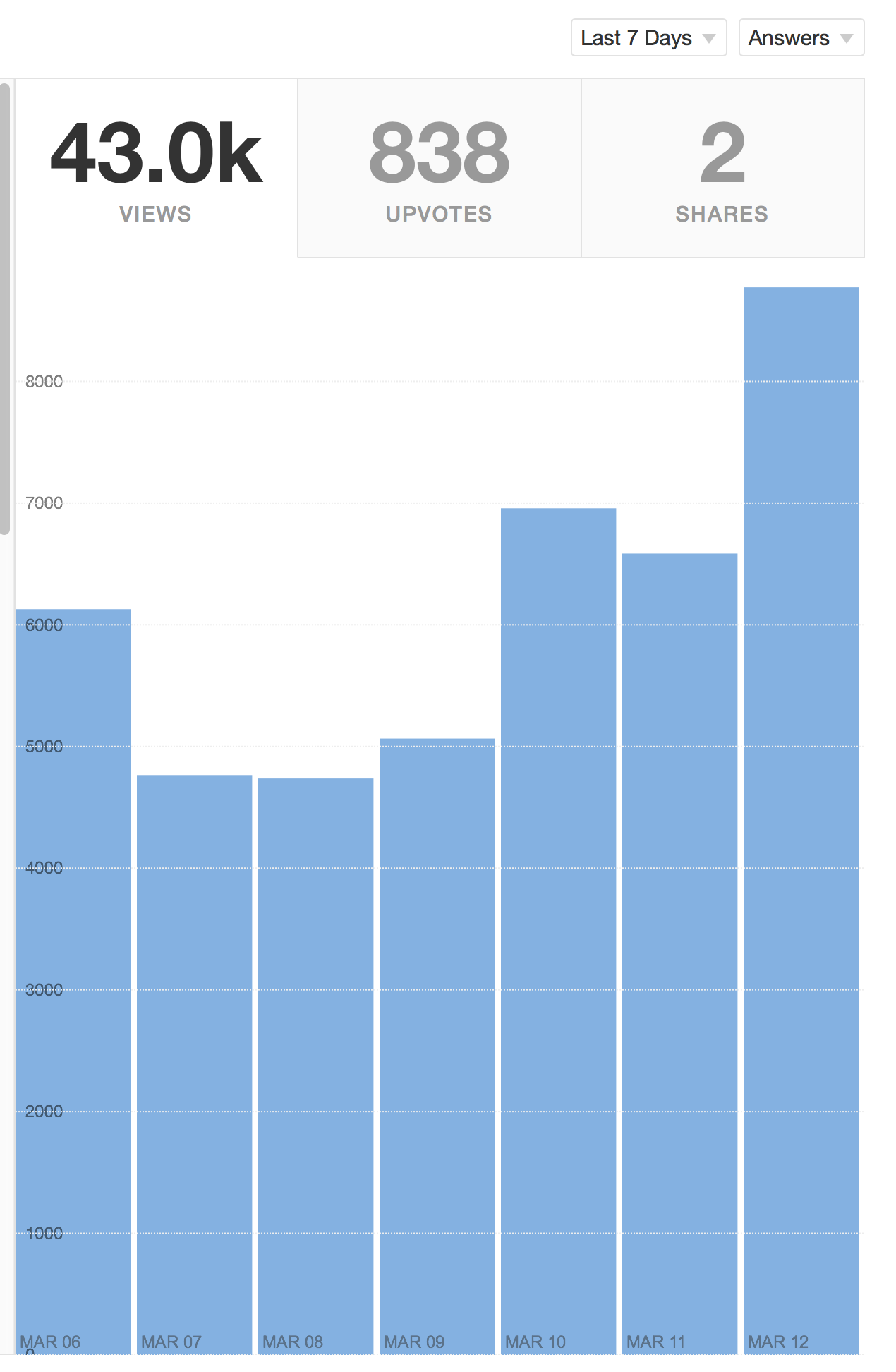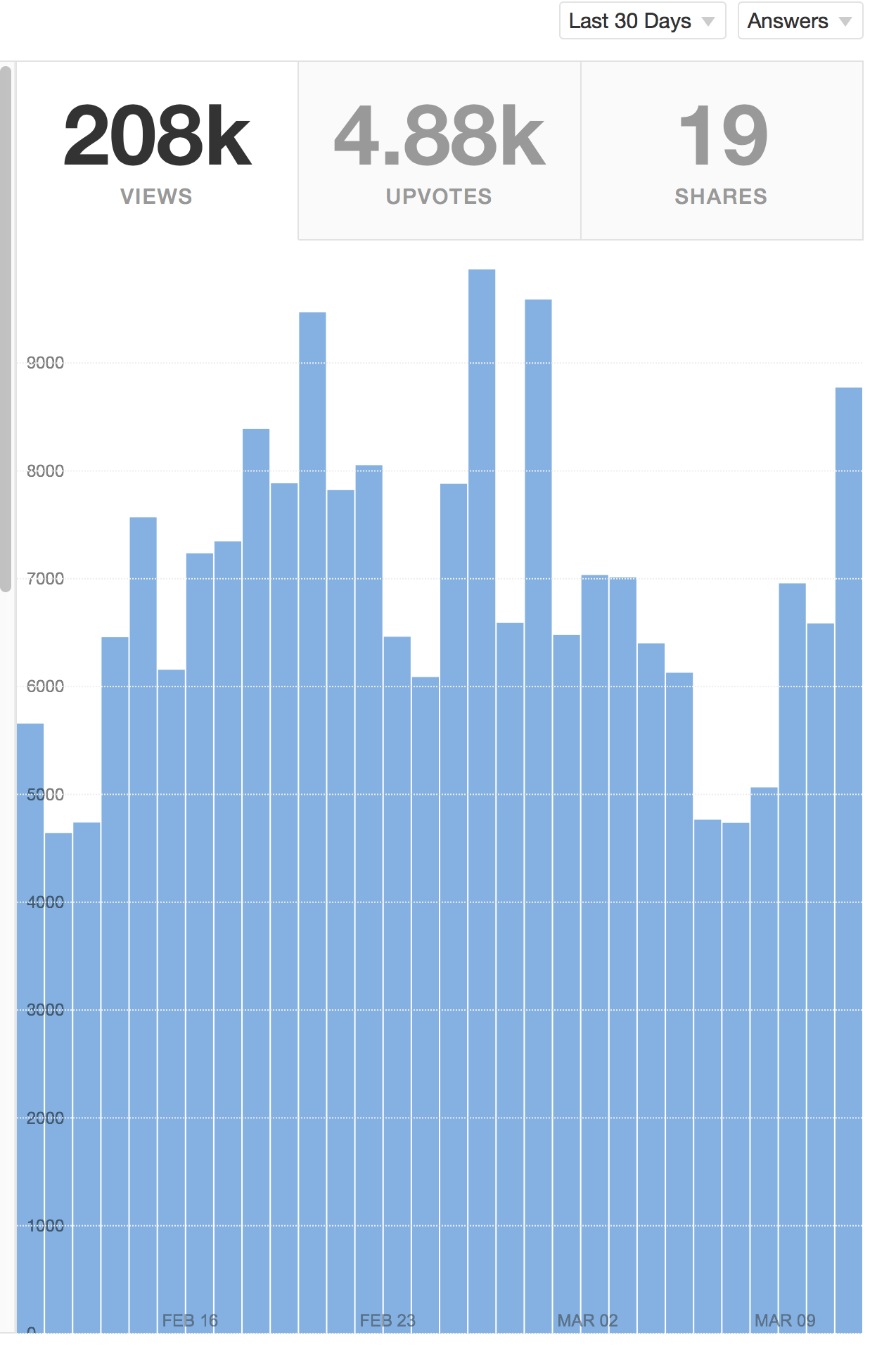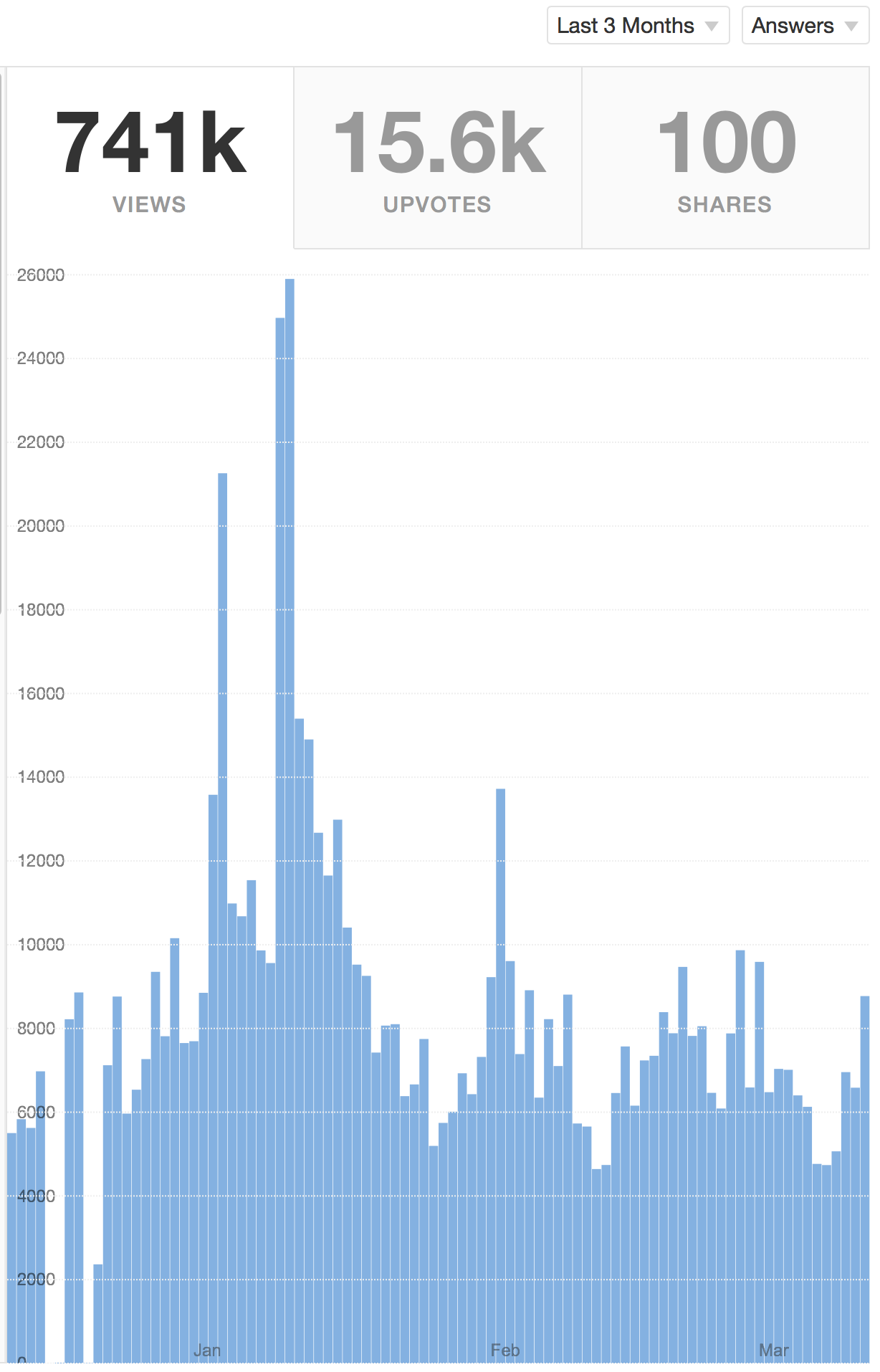My translation (and you can tell):
Account: Traducteur de questions Quora
Question: How does the Quora Question Translator work?
Question Details: How are the questions to be translated chosen? What is the level of supervision over this bot by the site owners? What is its anticipated level of activity?
Réponse de Sihem Soibinet-Fekih à Comment fonctionne le Traducteur de questions Quora ? (Sihem Soibinet-Fekih, A2A by Jay Wacker)
We select questions internally according to a series of search filters. For example, we observe the popularity of questions asked on English Quora, and work out which could be successful or provoke interest among French-speaking users.
The questions are then submitted to a machine translation platform to be adapted into French. The translated questions may be revised if we decide that the adapted version can be improved.
Day by day, we improve French Quora to give you a version of the site most faithful to the English and Spanish versions, while bearing in mind that each audience is unique to each language, and that the site should be subject to its own cultural specifics.


